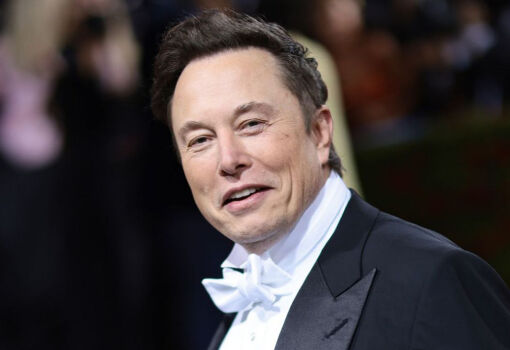
Alexandru Munteanu
The PAS party decided that Alexandru Munteanu could be such a candidate.
“In recent weeks, different opinions have emerged in society,” Adrian Balucel, head of the Presidential Administration, said on Rlive. – Some said that a party member is needed, while others said that the country needs technocrats and new people in politics. In the Action and Solidarity Party, we have always tried to combine these things. We have a political team – party members who have grown within the party and have proved themselves as politicians and leaders in their fields. At the same time, we are open to new people who want to contribute. Why Mr. Munteanu? Besides European integration and ensuring peace and stability, we need a strong impetus for economic growth. We believe that Mr. Munteanu has all the necessary competences and experience to bring this vision to the governance process.”
According to him, the discussions concerning the organization of the government’s work were held before, during and after the election campaign. Munteanu’s candidacy was agreed several weeks before the official announcement, and all members of the faction supported it. The name of the candidate was not announced in advance by chance, “so that everyone would have enough time to analyze, familiarize and search for information”.
And indeed, a flurry of opinions, accusations and “journalistic investigations” followed: that Munteanu studied in Moscow and therefore he is an agent of the Kremlin. Or that French special services are behind him and that he acts on the “Paris – Kiev – Chisinau axis”. They wrote about “Caribbean deals”, about cooperation with a lawyer under sanctions … Economist Veaceslav Ionitsa saw in what is happening signs of intraspecies struggle in the ruling party – obviously, hinting that different currents within PAS promote their candidates. And former Prime Minister Ion Sturza called “not to give in to blackmail”: “Let’s rise to Mr. Munteanu’s level ourselves, and not lower him to our level. Courage to those who have to make decisions! Do not give in to blackmail.
Prime Ministerial candidate Alexandru Munteanu gave exhaustive answers to all the questions and accusations on his page in social networks. The essence of them is as follows: none of his companies are currently registered in jurisdictions with special tax regimes, he broke ties with a Cypriot law firm when information about its ties with Russian oligarchs surfaced, he had nothing to do with the management of Natur Bravo in 2016 and was not involved in the deal with Fincombank in 2007. All in all, answered convincingly. A commendable effort, although, as former Justice Minister Alexandru Tănase commented, “half of the companies that sell us gasoline, electricity, beer and news are registered offshore.”
By the time the Constitutional Court validated the new parliament, commentators and journalists alike were “exhausted.” The main goal of PAS – that by the time a candidate is officially nominated, public attention will have shifted from the “skeletons in the closet” of the past to his professional experience and qualities – has almost been achieved.
By education, Munteanu is a physicist, has been involved in scientific and teaching activities, and even taught under outgoing Prime Minister Dorin Recean. According to the latter, it was Munteanu who played a key role in shaping his professional path: “He convinced me to choose electrophysics, although I was leaning towards mechanics. Then he said: “Dorin, the world is moving from atoms to bits”.
Alexandru Munteanu worked at the National Bank of Moldova at the very beginning of its creation. He worked at the World Bank, was Deputy Director of the Center for Strategic Studies and Reforms, served as Director of the Representative Office of the American Investment Fund WNISEF, and was a member and Chairman of the Boards of Directors of a number of companies in Moldova and Ukraine. Since 2007, he has headed the Private Equity Department of Dragon Capital (Ukraine). In 2016, he founded 4i Capital Partners, a private equity firm based in Kyiv and managing investments in Ukraine, Belarus and Moldova. The investment team currently manages the Europe Virgin Fund with significant support from international financial institutions such as the EBRD, the Black Sea Trade and Development Bank and the Swiss Investment Fund for Emerging Markets.
He has been engaged in public activities and was awarded the title of Chevalier of the Legion of Honor (Légion d’Honneur) of the French Republic. He is the founder and for 30 years the permanent president of the French Alliance in Moldova, as well as one of the co-founders of the American Chamber of Commerce in Moldova (AmCham Moldova).
Only one moment of Alexandru Munteanu’s biography was left without attention of the press. As the head of Western NIS Investment Fund in Moldova and Ukraine, in 2002 he was a member of the State Commission for Reintegration of the Republic of Moldova, created by the decree of the head of state. Its tasks included the development of proposals for changing the legislative framework to accelerate the reintegration process and the formation of a common legal, fiscal, monetary, energy, cultural and educational space, as well as identifying ways to reduce the negative impact of the consequences of the Transnistrian conflict and to stimulate trust, openness and constructiveness in relations with the left bank of the Dniester. Mark Tcaciuc, presidential advisor during those years, characterized him as follows: “Alexandru Munteanu has always been characterized by clear presentation of any thought, obvious systematic thinking, and worldview depth. And no hints of a theoretical botanist. All his projects at that time were characterized by practicality and timeliness, and his personal charm, intelligence and innate correctness opened any door”.
As another competent interlocutor told Logos Press, for a prime minister to be successful, “he needs to be able to negotiate, skirt sharp corners, have experience in leading large teams and, very importantly, be recognized abroad, have connections, reputation and authority. People need to know you and respect you if you want to achieve what you want to achieve. You need to be able to fight, argue and make peace.”
Now, going through all the likely candidates mentioned in the press (Vasile Tofan, Alexandru Gutu, Vladimir Bolea, Nicu Popescu, Mihail Popşoi, Radu Marian, Dan Perciun, Ion Sturza, Dumitru Alaiba, Doina German and Igor Grosu, and even Viorel Cerneutianu), it is difficult to say which of them could have gained more support than Munteanu.
And from all sides. He was equally praised and scolded by the opposition, the authorities, the left, the right, the centrists, the state and the nationalists.
This is what perhaps makes him the most compromising figure. Perhaps he could even count on broad support for the premiership in parliament. This would be a triumph of “strategic grace” and, at the same time, the satisfaction of “party vanity”. “We believe that Mr. Munteanu’s profile is very, very good for Moldova. We have the necessary votes, but it is left to the discretion of the other factions to decide whether they will support him,” said PAS MP Radu Marian.
Of course, even a strong candidate is not immune to surprises, but, as former Prime Minister Alexandru Muravski said, “if even professionals like him fail to cope with the situation, it will mean a complete collapse.” Whether Alexandru Munteanu will have a chance to prove the contrary, whether his own people will not “sell him out” by the time this issue of the newspaper goes to press will be known in the nearest future. The Presidency, where the most important decisions are made, promised through Adrian Balucel that “the Munteanu government is not a government of sacrifice, but a government of trust”.

